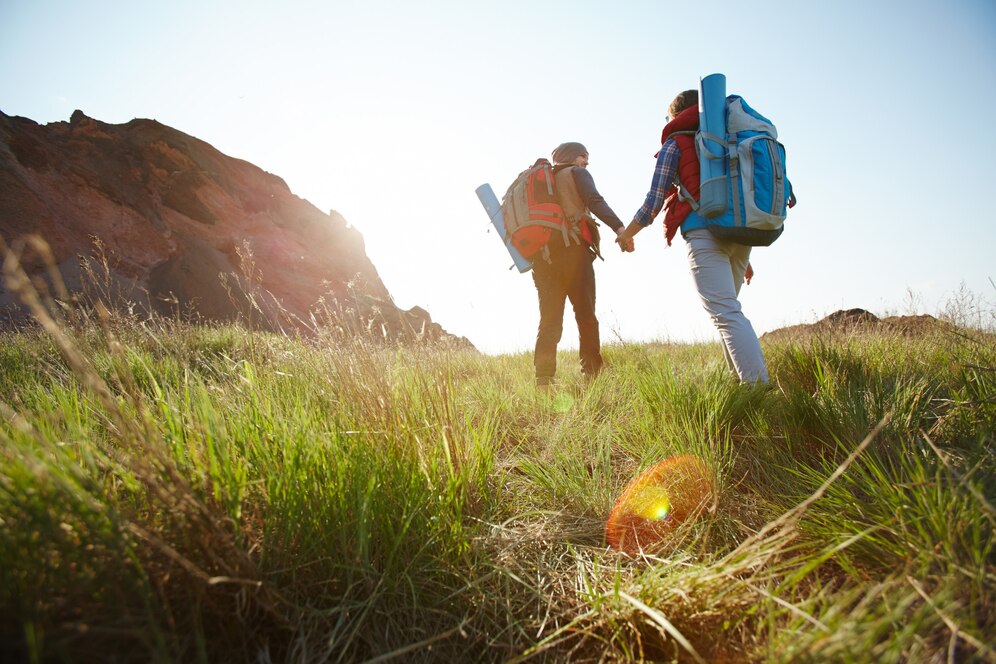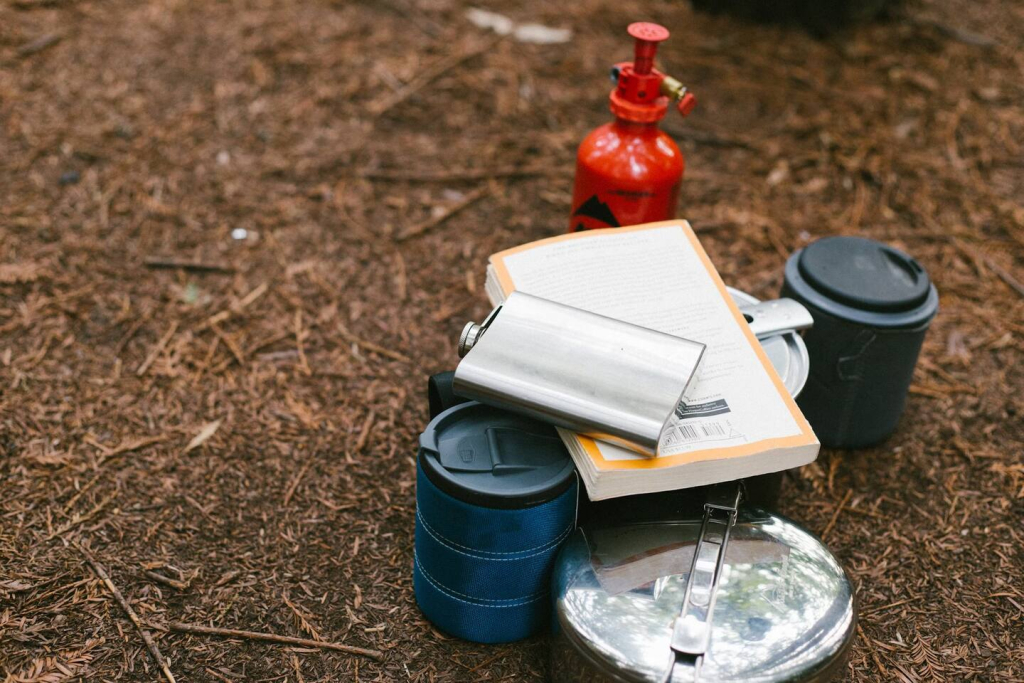First-Aid Kit Essentials for Travelers

Summer travel is back in full swing! As you pack for beaches, mountains, or anywhere in between, don’t forget a travel first aid kit.
These small lifesavers hold essentials for treating minor injuries and ensuring a smooth, healthy trip. Nonetheless, it is essential to know how to personalize your medical travel kit based on the following guide questions:
What is the type of place you are visiting?
Before packing your bags, consider your destination type: beach, mountains, city, or remote. Knowing this helps assess proximity to medical facilities and potential risks.
This way, you can tailor your first-aid kits to handle minor injuries and ensure a smooth, healthy trip.
What kind of activities are you going to engage yourself with?

Plan activities to determine first-aid needs. Outdoor adventures require more supplies for potential injuries like sprains. If your trip involves trekking or hiking in dense forests, consider bringing antibiotic ointment to prevent malaria, insect repellent, antiseptic wipes, sunscreen, medicine for motion sickness or altitude sickness, and cotton buds with rounded tips, plus other basic items. Assess activity risks to pack the right type and amount of first aid gear.
How many people will you spend the entire travel with?
Travel companions affect supply needs. Bring extras if they need first aid kits, but coordinate to avoid overpacking.
What is the age range of the people you will spend the summer vacation with?
The age of the people included in the trip determines the contents of a good first-aid kit. Carry enough medication suitable for the group, such as kid-friendly options like cough suppressant, antibiotics, tablets for fever, hydrocortisone cream, aspirin, or specific prescription medicines for elderly travelers.
Make sure that these prescriptions are in their original containers or if the original packaging is too bulky, make sure that the containers have clear labels to avoid confusion.
When traveling with kids and elderly, make sure to seek medical advice from your doctor before even hitting the road.
How long is the duration of your summer trip?
Trip duration affects first-aid kit size. Pack enough supplies of basic first aid items and prescription medications to cover the entire time away for unexpected needs.
Now that you know the several factors you must consider before planning your first aid travel kit, here is a list of first aid kit essentials for travelers.

Bandages and Gauzes
A first-aid medical kit wouldn’t be complete without bandages and gauze. Include bandages and gauze in various sizes for wound care (minor cuts to head wounds). Don’t forget to bring adhesive tape and safety pins.
Consider pre-medicated dressings for extra protection. Remember this is important when trying extreme sports such as sky diving and wall climbing, especially if the trip will be in other countries.
Medical Gloves
Medical gloves are essential in keeping you and the injured victim from bacterial infection. Include medical gloves (nitrile or non-latex) to prevent infection transfer during first aid. Choose clear colors for wound visibility, as it will be hard to assess the intensity of the wound if it’s dark or black.
Antibacterial Wipes
Include antibacterial wipes and tools for cleaning wound sites (avoid direct wound contact). It is a crucial supply that could instantly kill germs. It is used to sanitize the tools you need to treat the wounds, such as scissors and tweezers.
It can also be used to clean the hands before touching the surrounding part of the wound. The antibacterial wipes reduce the chance of infection, so ensure you know how to use them properly.
Instant Cold Packs
Instant cold packs are a must-have medical care tool in your travel health kit. These disposable packs activate with a squeeze and shake, providing quick pain relief, reducing swelling, and even treating minor burns.
Handy Tweezers
Pack tweezers in your first aid kit! A good pair of tweezers can lead you a long way, as they can be used for several purposes. They remove splinters, glass, insect bites, and more, which are especially helpful in remote areas.
Small Scissors
Pack small, blunt-tip scissors in your checked luggage for travel. It encompasses several roles, ranging from cutting gauze or bandages to slashing clothes to give more access to the wound. It can also open medication packages or cut off applications from the injured part and replace them with a new one.
They’re great for first aid but are not allowed in carry-on bags, so make sure to put them in your check-in luggage if you’re taking air transportation.
Digital Thermometer
Pack a digital thermometer in your travel first-aid kit to easily monitor body temperature on the go. Remember to clean it with wipes before and after each use.
There are plenty of easy-to-use thermometers online that are also reliable and accurate at the same time. Knowing you have a handy tool to test your body temperature anywhere and anytime can keep you feeling more at ease when traveling.
Self Adhesive Wrap
Pack self-adhesive wraps in your travel first-aid kit for easy wound support – no pins or tape needed! Great for sprains or sore muscles. Include this in your kit if your summer trip involves physical or outdoor activities like hiking.
Surgical or Medical Tape
Surgical or medical tape is a bandage’s partner in covering minor injuries. It secures the dressing to prevent dirt from getting into the open wound or is designed in such a way that it can be used as a tape for a sprained finger.
It is also important to note that surgical tapes are easy to remove from the skin without causing irritation or adhesive marks.
Most of them are hypoallergenic (suitable for sensitive skin) and are made with tiny fibers that help blood and air circulation.
Eyewash
When traveling far from home, wash off eye irritation with an eyewash solution. It will help you clear your sight and soothe any discomfort the foreign object may cause. Small debris or dust particles can be lodged into your eyes in any environment.
Ensure yourself with eye protection by getting a solution that can flush off anything that may cause eye irritation. It is small and handy, so it fits into your pocket-friendly bag.
Essential Oils
Mothers know that essential oils are necessary for any summer trip. It provides a familiar sense of comfort and relief. It gives off a great vibe of relieving pressure from headaches and sore muscles. It helps people fall asleep and reduces stress caused by external factors.
First Aid Manual
If you need to learn how to use your prepared first aid kit, look for your first aid manual and consult what to do. It contains information about injuries and treatments. A descriptive mini-book guide will guide you when giving the best first aid.
Other items to include
Besides the essential wound care items, consider including medications you regularly take and a few additional supplies: pain relievers like ibuprofen, antihistamines for allergies, and medicines for diarrhea or upset stomach.
Oral rehydration salts can be helpful if you experience dehydration from travel or illness. If you have any medical condition, pack a medical alert bracelet to communicate your needs in an emergency. Remember to include a first-aid information card with instructions on CPR and primary wound care.
Live a Well-Rounded Life in Camella Homes

Camella Grande Series Freya and Greta for SmartHomes
After having so much fun, you will always need a home that can give you good comfort. A house and lot for sale in any branch of Camella nationwide can give you the best living experience you will ever need.
This housing development, strategically located near primary establishments such as schools, places of worship, medical centers, and tourist spots, will help you live the kind of life you always dream of.
Camella is the country’s largest homebuilder, having built more than 500,000 homes nationwide. For more information, click here.

Celebrate Life’s Milestones in Camella!
Make unforgettable memories in a Camella home.
Our communities are designed to elevate your living experience.


